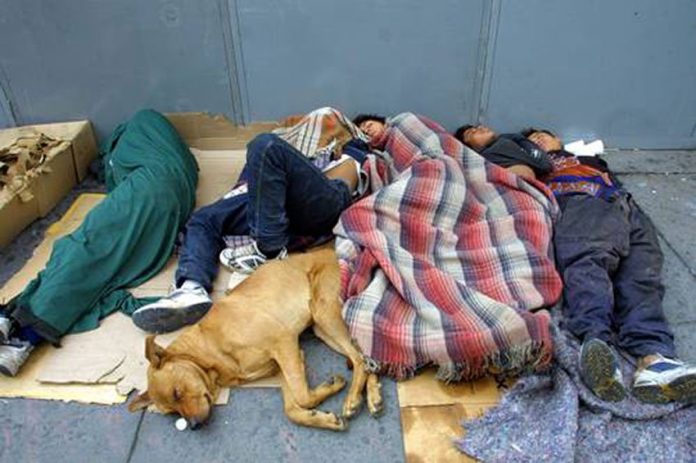Money, clothes, food and medicine — those are a few of the perks that Jalisco crime cartels offer to lure street kids aged between 8 and 20 to their ranks.
An organization that provides aid to street kids said that the majority of children and adolescents working for the cartels are used to package or sell drugs.
According to the National Institute of Statistics and Geography (Inegi), at least two million minors between 5 and 17 years old held illegal jobs in the state in 2017.
The head of the school of law at the University of Guadalajara said the offer of money, a job and drugs makes it easy for cartels to find recruits among youths living on the street with little to occupy their time and little chance of bettering their condition.
“If one doesn’t have anything to do, he gets sucked into an evil lifestyle, ” said Marco Antonio González Mora.
“The street is a monster with a thousand pincers that can arrive suddenly and without warning from any direction, and even if you’re very careful and don’t want to fall, you fall,” said “O,” a youth who lived on the street as a child and now works for a nonprofit organization that provides assistance to children in the greater Guadalajara metropolitan area.
O said that minors looking for work are the cartels’ preferred victims. “J,” 17, is such a minor. J says that his history with the cartels began because he was looking for work to help his parents with household expenditures.
“What type of job can an underage boy, a minor, get? Maybe washing cars, but there’s no money in that. If he doesn’t have anything to do, he falls into an evil lifestyle.”
J explained the cartels look for their youngest recruits on the streets of municipalities like Tonalá and Tlajomulco. The drug gangs often show them more kindness and consistency than they have been accustomed to up to that point in their lives.
O lived for 13 years on the Cerro del Cuatro in Tlaquepaque, notorious for murder and drug trafficking, and recalled that during her years of work with the cartels they could often be more dependable employers than the government.
“It’s not as if they just pay by the day; no, they pay a weekly salary, and if someone gets sick, they pay for the medicine. I mean, they actually follow through, which is something the government doesn’t do.”
O said she finally decided to leave her life with the cartels and seek rehabilitation when she witnessed the fate of other youths in her situation including that of a couple that once held control of illicit trade in certain neighborhoods, and were violently killed.
Source: Reforma (sp)
